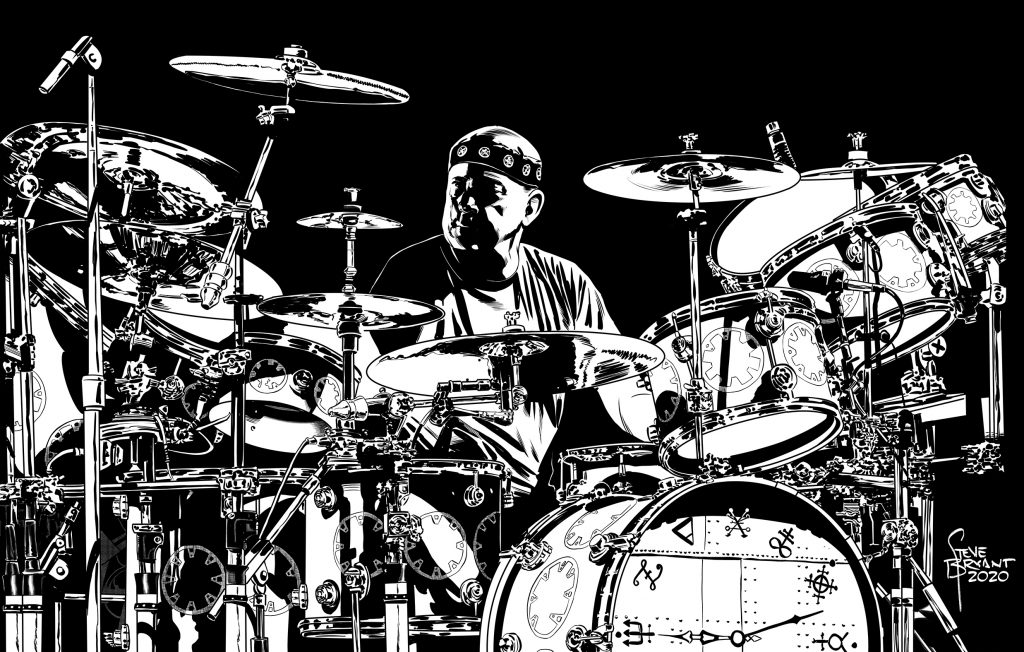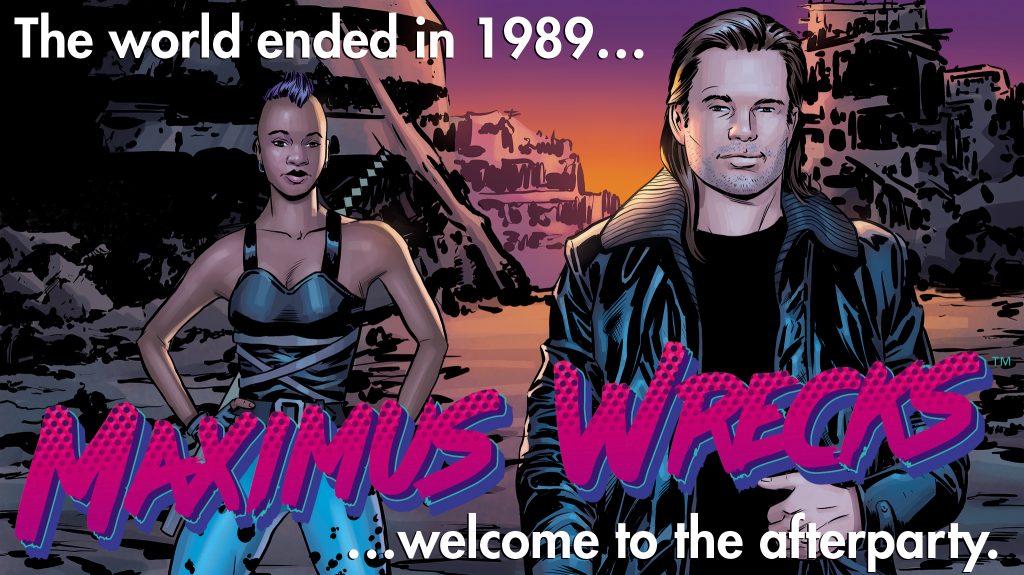
I’d always planned to write about why the band Rush is so important to me. With the passing of Neil Peart, this is as good a time as any—and probably past due.
A lifetime ago, I took up an instrument—bass—and played in a bunch of bands. As a musician…let’s just say that I make a pretty good comic book creator and leave it at that.
But it was during those teenage years that I discovered the music of Rush. In addition to the virtuoso musicianship, there was something in the lyrics that hit home. I know many people reference the sci-fi and fantasy stuff, but beyond that, the lyrics reflected a love of language in the way words bounce off one another, teaming with unexpected contrast and alliteration. It really clicked with me. It still does.
The band never stayed in one place, creatively. One would think that after the massive success of 1980’s Moving Pictures, they could have lingered in that same sonic space. And who could blame them? Countless other bands have done so, carving out a particular audio territory in an effort to relive, recapture, or revitalize a past glory.
But that wasn’t Rush. Their music was a reflection of what they were listening to, exploring, and being inspired by. As a young creative, that perspective became a guiding light for me, and it holds true to this day.
Something else that resonated with me was all of the behind the music stuff—not salacious tabloid fodder, but stories of individuals intent on improving their craft, of producing their art their way, and maintaining friendships while creating art together for four decades.
In 1994, after recording for 20 years and topping numerous “Best Drummer” polls during that span, Neil Peart sought out a new drum teacher. With jazz drummer Freddie Gruber, “[I] completely rebuilt my drumming from the ground up. I feel like I’ve started over as a beginner.” After spending 2 years with Gruber, Peart again sought out instruction in 2007, teaming with another jazz drummer, Peter Erskine. Of that education, Peart shared the following exchange:
“I said, ‘Hey, as far as I’m concerned, I’m a butcher, and you’re a surgeon.’
“Peter laughed and spread his hands dismissively, ‘You’re not a butcher.’
“I raised a hand up high, palm out, and smiled, ‘Hey—I’m a good butcher; I’d just like to get a little more surgery into it!’”
Humility and humor in pursuit of perfecting one’s craft. Isn’t that how we’d all like to proceed?
Much is made of an Ayn Rand connection, and it’s largely blown out of proportion. Rush aren’t a bunch of hardcore Objectivists, Fascists, or Right-Wingers. The truth behind it is much simpler.
The Ayn Rand stuff came during a period when Mercury, their record label, was on the verge of dropping the band…in fact, they ordered the band to produce a more commercial album—something more in the vein of their first album, or similar to the band Bad Company.
As Geddy Lee said, “Caress Of Steel had bombed. The gigs were half-empty. We named it the ‘Down The Tubes Tour’. We joked about Neil going back into the farm equipment business, and Alex and I going back to painting movie theatres. When we started on 2112. We thought this would probably be the last record we make. So we were like: fuck you, Mercury. If we’re going to go out, we’ll go out doing our crazy shit, not failing at what you want us to be.”
That record proved to be the turning point for the band.
Lee continues, “Ayn Rand had a very controversial image as an anti-socialist and extreme right-wing capitalist, but that was a side of her work that was not of interest to us.”
A pertinent quote from the Fountainhead sums up what the band took from Rand, “The question isn’t who’s going to let me, the question is who’s going to stop me.”
I’m sure that resonated with the band as young creatives, and it’s been one of my mantras ever since I heard it. (I respect Ayn Rand in this context: an artist doing what they’re motivated to do—not in reaction to critics. Her social thoughts? Not so much. Your mileage may vary.)
The same three guys, creating together for four decades. When Peart’s 19-year old daughter died in a car accident, followed by his wife succumbing to cancer within the year, the band went on an extended hiatus. There was never any thought of continuing as Rush without Peart.
When asked if Rush was a democracy, guitarist Alex Lifeson responded, “It always has been. And it wasn’t just a majority that ruled, it had to be unanimous in any decision. So if two guys wanted to do something and one didn’t, then you talked about it, you worked out the pros and cons, and at the end of it, if there was still that one that didn’t want to do it, it didn’t get done. It wasn’t worth having the bitterness over some seemingly meaningless decision.”
That sort of unity informs the way I work. I make my comics, usually in collaboration with friends. That bond and sense of kinship means the world to me.
So for that, and probably thousands of other parts of my creative mindset that this trio has contributed to, thank you. And thank you, Neil, for all you shared.
I’ll close with a a snippet from the Acknowledgements from the Athena Voltaire Compendium (below).


